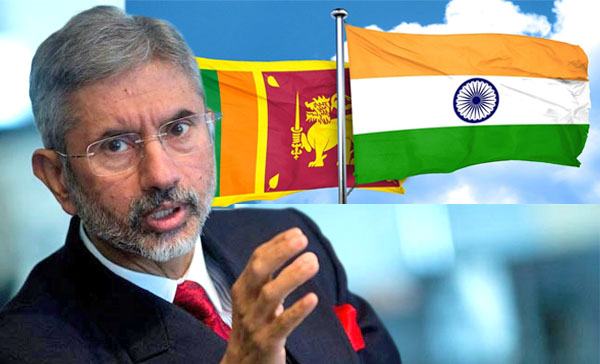India says political developments in Sri Lanka are matters for Sri Lanka to handle.
External Affairs Minister (EAM) S Jaishankar on Wednesday expressed his confidence that India’s relations with its neighbours, Sri Lanka and Bangladesh, would remain positive and constructive, despite the recent developments in the two nations.
“I would urge you not to be deterministic about it. It’s not like India is seeking to control every political move of every neighbour,” news agency PTI quoted Jaishankar as saying during an interaction at an event. “That’s not how it works. It doesn’t work, not just for us, it doesn’t work for anybody else,” Jaishankar added during the event titled ‘India, Asia and the World’, hosted by the Asia Society and the Asia Society Policy Institute in New York.
“I’m very confident that in our neighbourhood, the realities of interdependence or mutual benefit and our ability to get along will serve both our interests,” Jaishankar stated, adding, “Those realities will assert themselves. That’s been the history.”
Jaishankar further noted that every few years, some event occurs in the region, and people suggest there is an irretrievable situation. “You then see the correctives beginning to manifest themselves,” he explained, adding, “So, I would take it in that spirit and am quite confident that in both these cases (Sri Lanka and Bangladesh), our relationship would continue to be positive and constructive.”
These remarks were made in light of recent changes in the governments of Sri Lanka and Bangladesh — Anura Kumara Dissanayake being sworn in as Sri Lanka’s new President and Sheikh Hasina’s removal from power in Bangladesh before that.
Regarding Sri Lanka, Jaishankar highlighted that India had extended timely aid during Colombo’s severe economic crisis of 2022.
Highlighting that India “stepped forward” when Colombo was facing a “very deep economic crisis”, and when “nobody else came forward”, Jaishankar said, “And I’m very glad we did it. We did it in a timely manner. We did it on a scale. We provided $4.5 billion, which effectively stabilised the Sri Lankan economy.” Jaishankar added that this assistance was not tied to any political conditionality. “We were doing it as a good neighbour who did not want to see that kind of economic meltdown at our doorstep.”
Jaishankar reiterated that political developments in Sri Lanka are matters for Sri Lanka to handle.
He also explained that each neighbouring country has its own unique dynamics, and it is not India’s place to dictate them.
Marxist-leaning politician Anura Kumara Dissanayake, noted for his past pro-China inclinations, was sworn in as Sri Lanka’s new President on Monday. This event has been closely monitored by India, especially in the wake of the removal of Sheikh Hasina in Bangladesh, sparking concerns that anti-India elements in the region could gain strength.
Dissanayake’s win in Saturday’s election, where he outperformed major candidates, including the incumbent President Ranil Wickremesinghe and Namal Rajapaksa, marks a significant shift in Sri Lanka’s political landscape.
he election, which followed mass protests that led to Gotabaya Rajapaksa’s removal in 2022, carried high stakes for New Delhi due to its major geopolitical and security interests in the Indian Ocean.


